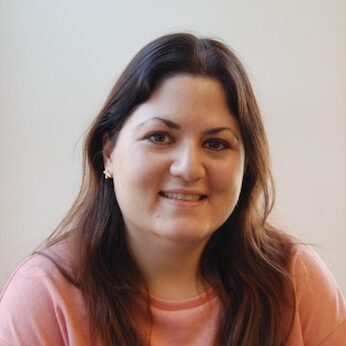Babson Provides Ulster 25@25 Leaders New Entrepreneurial Perspective
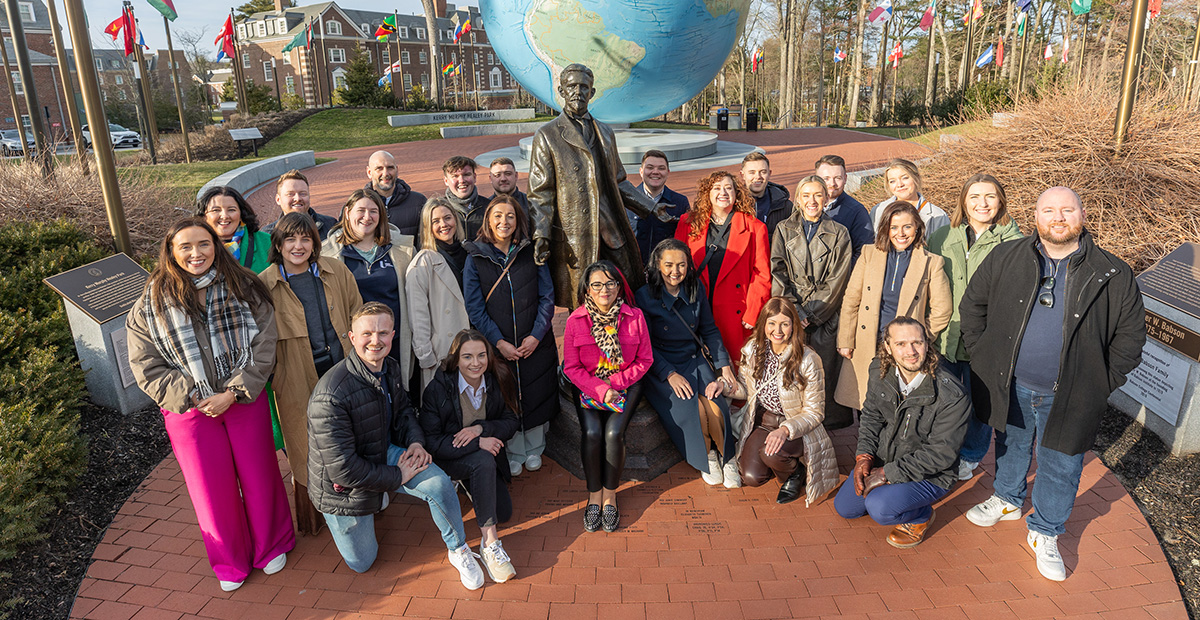
Until recently, Laura O’Hare didn’t think of herself as an entrepreneur. The mere thought made her laugh. As a youth engagement manager at the Cancer Fund for Children in Belfast, she sees herself as a leader for young patients and their families, as well as in her community. But, as she studied community youth work at university and grew professionally in that field, entrepreneurship never crossed her mind.
Regardless, she found herself at Babson College.
O’Hare is part of Northern Ireland’s Ulster University 25@25 Leadership Programme for Young Leaders, a group of professionals and Ulster alumni who came together in 2023 to commemorate the 25th anniversary of the Good Friday Agreement. The program is meant to look toward the future of Northern Ireland and support community leaders in various leadership projects and social initiatives.
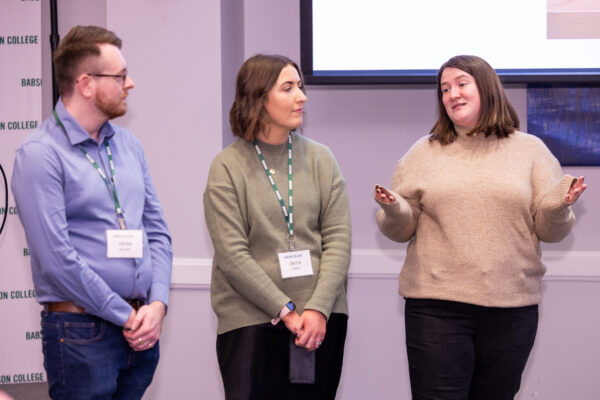
The cohort has met during the last week of every month since September 2023, and last month, they came to Babson. The group participated in a weeklong entrepreneurial program with Babson Executive Education that culminated in a rocket pitch event that, serendipitously, happened on Good Friday 2024.
“I was a wee bit intimidated (before coming to Babson), thinking, ‘I am going to get this? Is this going to be relatable?’” O’Hare says. “By Day Two, I realized how these practices could work in my context and provide real, practical solutions.”
Through courses about discovering your entrepreneurial identity, design thinking, finance modeling, prototyping, and leadership, O’Hare began to see that entrepreneurship goes beyond starting a business. For all participants in the 25@25, the week at Babson brought emotional and professional breakthroughs, presenting a new way of learning and thinking about what the future can hold.
Bringing an Entrepreneurial Mindset to the Workplace
A touchstone of the Ulster program is about bringing innovation and forward-thought to Northern Ireland. For Babson, it’s about finding ways the Entrepreneurial Thought & Action® (ET&A™) mindset can be applied across industries. Nigel Brannigan, a director within Factor Law, has been looking to bring AI and language modeling into law, but he finds the risk-averse industry is apprehensive about the new technology.
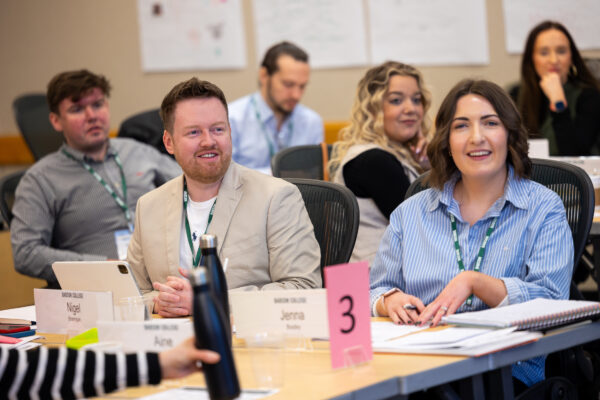
“The model Professor Andrew Corbett took us through around a managerial mindset and comparing a precision mindset versus the entrepreneurial creative mindset, I was making so many notes,” Brannigan says. “I’m not a business owner, but I am a leader in my organization. If we can shift their mindsets to be more entrepreneurial mindsets, we will unlock that bit in an industry that is totally opposed to change.”
Brannigan, who used to practice law and now works on the client-relations side, came into the 25@25 liking his job but wasn’t passionate about the vocation. Going through the coursework helped him figure out why he enjoys his job and how he can build on that.
“I discovered my ‘why’ is my role in influencing and helping others build good careers, and bringing high-quality employment opportunities and winning investment to Northern Ireland,” he says. “I love that I’m able to help other people.”
“None of the sessions ever had a tumbleweed running through. You knew the minute that session started you were in it. That was a unique characteristic that we got here in Babson that we probably wouldn’t have had at home.” Michael Lynch, Ulster 25@25
Embracing a New Way of Learning
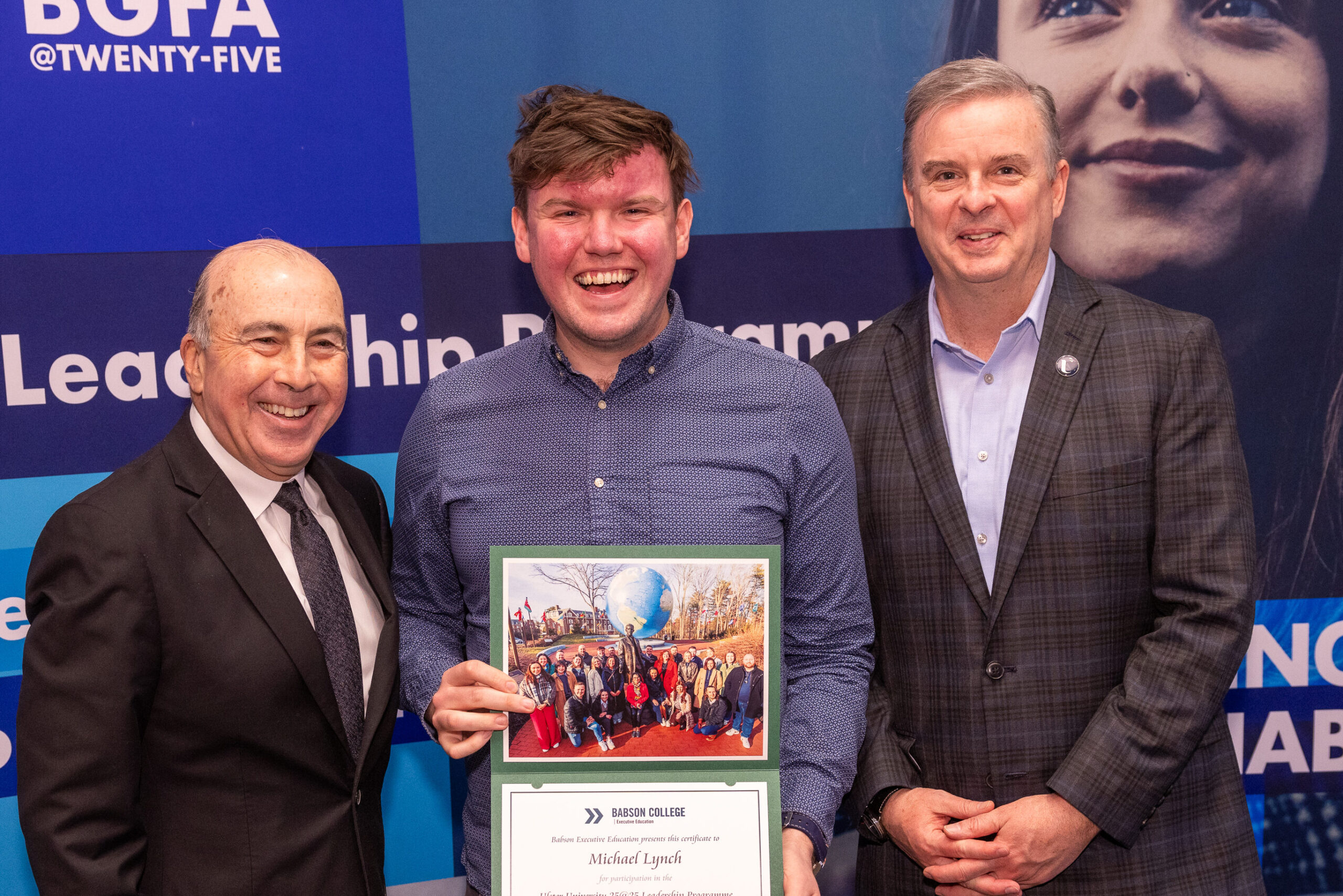
Part of why emotions and breakthroughs were so prevalent is the interactive, kinetic style of teaching in the Babson classroom. There was not a single lecture on the schedule.
Because of that, students can bypass the fundamentals to get to that “why,” and think creatively about how an entrepreneurial mindset applies to their lives and careers. For Michael Lynch, who works in sales at the indigenous Belfast company Datactics and wants to expand access to integrated schooling in Northern Ireland, it meant everyone had to be on.
“None of the sessions ever had a tumbleweed running through,” Lynch says. “You knew the minute that session started you were in it. That was a unique characteristic that we got here in Babson that we probably wouldn’t have had at home.”
Finding the Entrepreneur Within
Lynch also found that his value base was challenged in the Babson classroom, which he called a “good thing.” Having strategies to deal with conflict will help him navigate the political landscape of the integrated education movement.
“People can challenge what you’re trying to do, and I never had a tool kit to deal with that,” he says. “Integrated education is a very divisive issue politically, and we have been engaging with political parties that would traditionally be opposed to those policy areas … the sessions on value-led partnership and social entrepreneurship, and Professor Wendy Murphy’s session on conflict, helped me solidify how one could deal with those in a constructive way.”
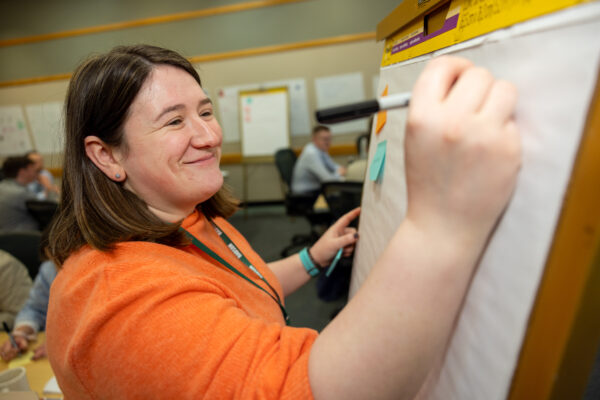
For O’Hare, one of the biggest breakthroughs was her shift in entrepreneurial mindset and her role in it. “Before my perception of it would have just been an entrepreneur is somebody who started their own business, and we certainly have those in our group,” she says.
In the session about finding the entrepreneur within, participants used imagery to depict what they considered entrepreneurship. Now, after that session and others, being an entrepreneur doesn’t feel like a joke to her.
“Whenever I look at what came out of it for me, there’s bravery, there’s the need to ask for help and not being an island, and there’s being part of an ecosystem,” she says. “Seeing an opportunity and taking it was a theme. Act and then learn. I can totally see how those elements of entrepreneurial thinking and action can translate anywhere.”
As she looks around at all the visualizations of entrepreneurship hanging on the classroom walls, she sees it’s an actual reality.
(Photos: Nic Czarnecki)
Posted in Community, Entrepreneurial Leadership
